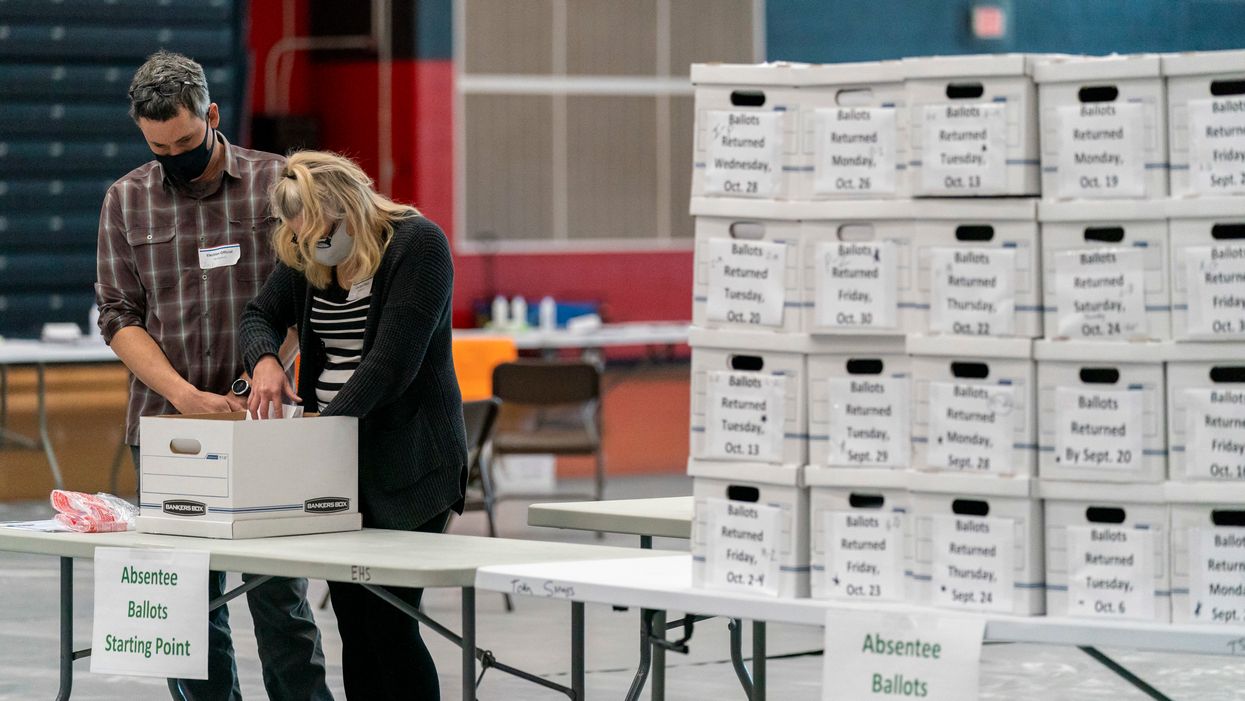As a career diplomat who proudly represented the United States abroad in Latin America, Europe, Central Asia and Africa, I saw firsthand how elections were stolen in repressive countries. In the days ahead, we need to make sure that every vote is counted to avoid this result at home.
Time and again, votes in many of the authoritarian places where I served were rigged to allow corrupt leaders to remain in power indefinitely. As an international election observer, I often saw violations including ballot manipulation, proxy voting and voter intimidation at polling sites.
But the most blatant cases of electoral rigging often happened during the vote count itself — or after transmission of tallies to government-controlled electoral commissions.
To cite just one example, when I was posted to Romania in the early 1990s, I served as an international observer from the U.S. embassy for a parliamentary election there. After the last polling place where I'd observed was closed, I was allowed to remain to watch the paper ballots being counted by poll workers. Opposition and ruling party representatives were also there and permitted to challenge any ballot that appeared to be unclearly marked. As I understood Romanian, I could follow everything being said, although as an observer, I was not allowed to intercede in any way. Generally, consensus was reached among those present on whether such ballots should be counted or declared void.
I was impressed by what seemed like a fair process and agreement by all sides on the final tallies. Opposition candidates did very well at this polling place, and the results were posted outside on a bulletin board for the public to see. All the ballots, along with the tally sheets signed by the poll workers and party representatives, were placed in a container. It was then secured with a wax seal and transported to the electoral commission. Everything seemed above board.
But days passed before the commission, controlled by the ruling party, announced the winners. And when it did, the tallies showed landslide victories for almost all of the ruling party's candidates.
The opposition parties challenged the results, arguing there had been strong support for their candidates at sites like mine throughout the country. They charged that the election had been rigged, and international observers concurred. But the government said there had been "grave errors" in polling site tallies requiring the commission to re-examine the ballots and count them again.
There was no transparency in how this alleged recount was conducted. Nevertheless, the government declared the "revised" tallies were correct, and the results final.
In those years, Romania's judicial system was largely controlled by the ruling party, so the opposition had no recourse to challenging the outcome in court. It was my first experience with a party in power stealing an election. Unfortunately, I would witness similar rigging elsewhere during the decades that followed.
What relevance, if any, does this experience have for this American presidential election? Normally, I would say none whatsoever. But now, I'm not so sure.
Due to the coronavirus pandemic, record numbers of Americans voted by mail — 64 million envelopes had been returned by the morning of Election Day. After receiving their absentee ballots, many returned them to an official drop box rather than use the Postal Service. In four states, elections with entirely-by-mail voting have been held for years without any evidence of measurable cheating.
But President Trump, as has become universally known, has challenged the legitimacy of such voting by mail. Without any proof, he has claimed many times that this practice will lead to massive electoral fraud and has already made illegitimate the results that poured in Tuesday night. His solution, he signaled up until the eve of the election, will be to contest results that don't go his way all the way to the Supreme Court, which is now dominated by conservatives, including three justices he appointed.
There is simply no reason to believe that voting by mail has undermined a free and fair election in our country. But because so many more of us voted this way than ever before — and because the envelopes must be opened, the signatures checked and the ballots readied for tabulating all by hand, but in some swing states not before Election Day — the process of counting all the votes that have been cast with total legitimacy will take longer than many are used to.
As voters, we need to stay watchful in the coming days. It is crucial that the final vote count be complete, accurate and fair.
Contrary to what the president has claimed, there is nothing in our Constitution or laws that says presidential winners must be declared on election night. We should remain both patient and vigilant in the days ahead to ensure all our voices are heard — and remain alert in the 11 weeks until Inauguration Day to help ensure the legitimate result prevails.
State and federal officials must also stay vigilant to prevent foreign governments and any others from interfering with the final vote count. As patriotic citizens, it's our duty, and we all have a role to play to defend American democracy if we want to make sure we avoid the sort of electoral rigging I saw so often overseas.



















